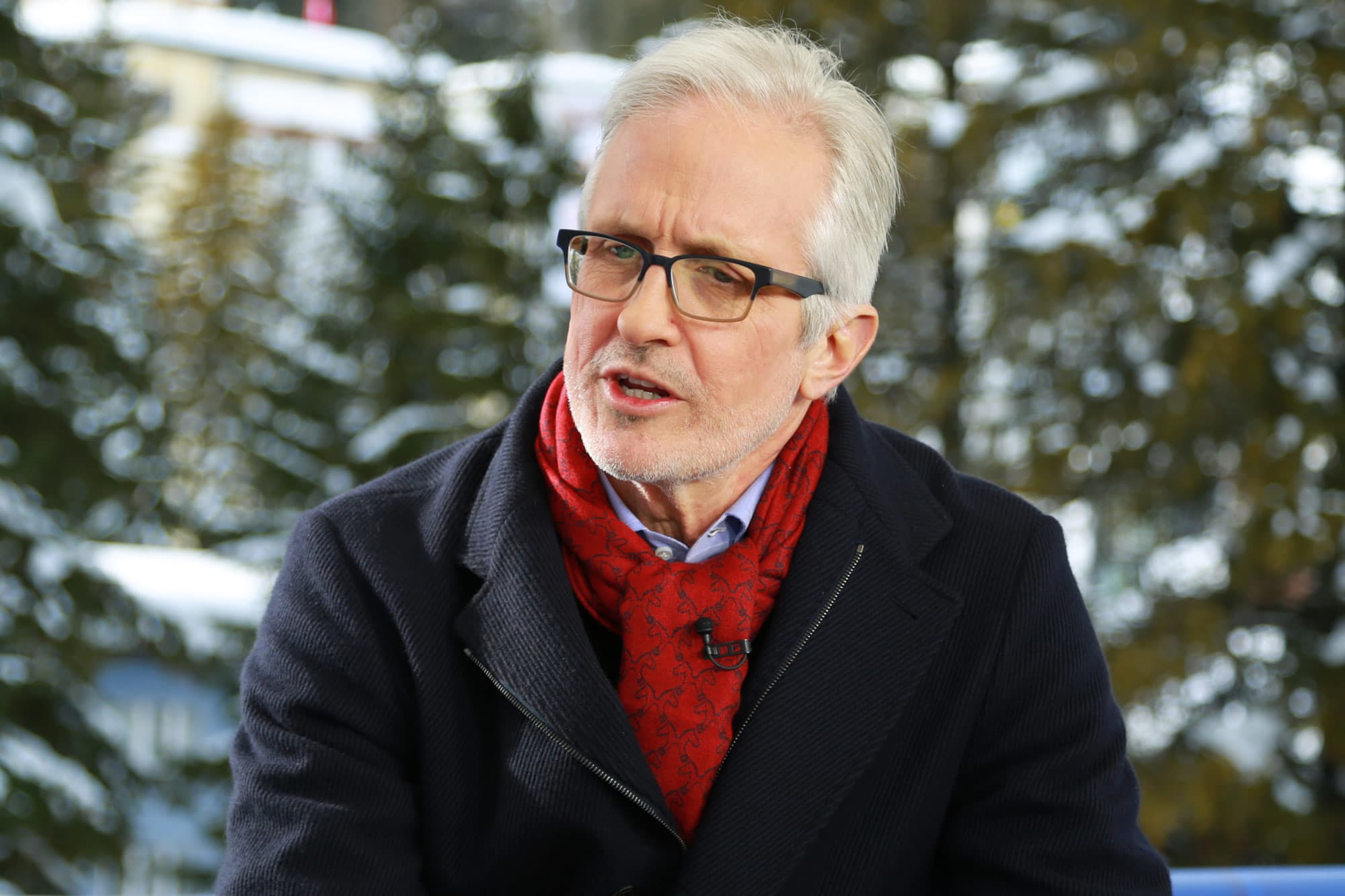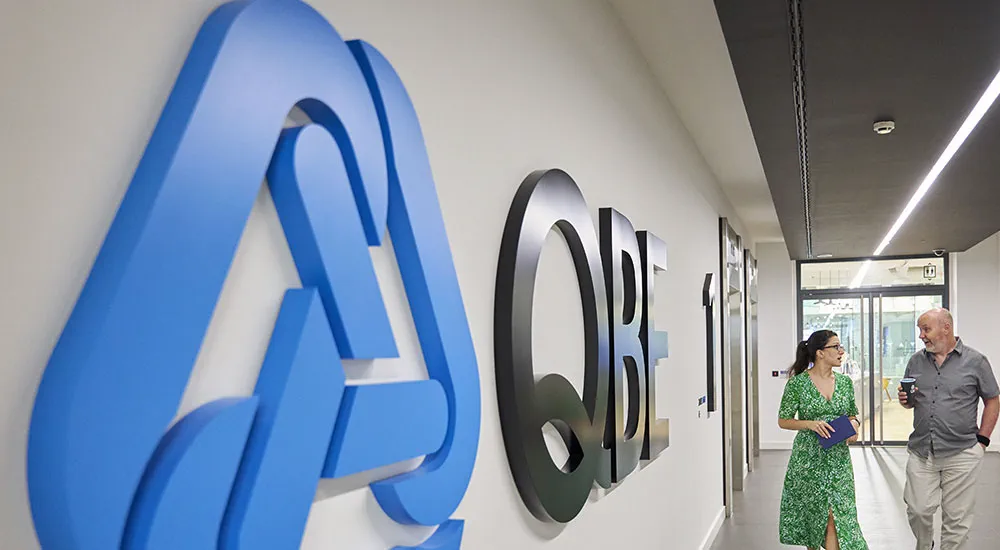Editor’s note: ImpactAlpha contributing editor Imogen Rose-Smith, a longtime senior writer for Institutional Investor, contributes a bi-weekly column on the policies, practices and strategies of the largest asset allocators, including pensions, foundations, and endowments. As Imogen says, she’ll be “tracking what investors do, not just what they say.”
ImpactAlpha, July 19 – To know what big private equity funds are up to, look – and listen – to what they tell their largest clients. Like the $112 billion Oregon Investment Council.
For those willing to dig, the minutes of meetings of public pension funds offer a wealth of insight into what asset managers and owners are thinking. Lately, the asset managers are pitching the owners on climate investing and ESG. One of the biggest pitchers: James Coulter, the co-founder of TPG Capital.
In “the next 30 years, the climate revolution is going to look like the digital revolution of the last 30 years,” Coulter told Oregon’s six-person board, which oversees state, mostly pension, assets, at their January board meeting. “Tesla is like AOL – the first thing you’re going to see. We haven’t created the Google of the climate revolution. It has to happen.”
ESG has finally found its true sales reps in big private equity. Because if there is one thing these men of finance know how to do, it’s sell.
Coulter, now 61, has schmoozed the Oregon Investment Council, or OIC, for years. A former Lehman Brothers investment banker, Coulter founded TPG with David Bonderman and a third partner, in 1992. Coulter and Bonderman, a former civil rights and bankruptcy lawyer, had gotten to know each other working on leveraged buyouts for Texas billionaire Robert Bass.
Originally called Texas Pacific Group, TPG was based in Fort Worth, Texas, and made its name in the 1993 takeover of Continental Airlines and other deals. The OIC was one of its first investors. Oregon’s 1993 investment of $50 million in TPG Partners returned 3.66x for the system, or an annual IRR of 36.3%.
Now Coulter is singing a new tune. In May, he stepped away from TPG Capital, which manages more than $80 billion. He’s focused on Rise, TPG’s two impact investing funds, and on the new TPG Rise Climate Fund, which is reported to be raising $5 billion.
Where private equity leads, other firms and more importantly asset owners will follow. Coulter is among a small group of investment managers and bankers like him who have the power to influence how money is invested.
Coulter says his new zeal for climate investing rests on four things that have changed. Corporations are taking Net Zero emissions requirements and timelines seriously. Investors want it. Consumers want it. And the technology is there.
“The most important thing is, we’ve had a technology shift,” Coulter told the Oregon board. “Battery costs are down 90%. Solar costs are down 90%. Electric vehicles are at grid parity. Top-down, bottoms-up,” there is a lot of opportunity, he said.
And it’s not just climate change. When Coulter pitched to OIC in 2018, the vice-chair (now chair) of the investment committee, John Russel, raked him over the coals for the firm’s lack of diversity.
This time Coulter came with answers. Since 2018, the firm has engaged in a massive diversity effort, both internally and with regards to its portfolio companies, he said. “It is a full-on effort,” he said. The firm has an entire department engaged on how to get diversity “into our system.” Coulter argues that private equity firms can be more effective at achieving corporate diversity at the companies they own than public market shareholders.
Overall, Coulter argues (shockingly) that private equity is the best place to fix the G of governance in ESG. A good board should function “like a dinner party,” Coulter said, including people with different backgrounds and perspectives for lively discussion and better decision making. The G, for governance, is increasingly important to firm management, and especially human talent and board dynamics.
Remember, this is TPG. It was only a few years ago at an Uber board meeting that co-founder Bonderman, now 78, thought it was ok to remark that putting more women on boards just resulted in “more talking.” Bonderman quickly apologized for the 2017 gaffe, and resigned from the ride-share companies board.
What a difference four years and a global pandemic makes.
The new green deal
ESG, even in private equity, is not new. But the tone has changed. No longer a reluctant, symbolic, marketing-driven sideline, private-equity strategies are putting environmental, social and governance approaches on center-stage. Private equity firms have become among ESG’s most enthusiastic boosters.
And it works! Pension and endowment boards don’t want to hear Greta Thunberg, or other activists, banging on about climate change’s threat to the planet. They want to be sold the future. A future of prosperity and double-digit returns.
After 30 years of fundraising from the likes of OIC, big private equity players know how to sell the dream.
Going forward investors “are asking corporations to do what they do better and in a more responsible way. And so private equity as a place to express that is going to be held to a higher standard, should be held to a higher standard and at your level you have to focus on this question of not just of returns but how those returns regenerate.”
Coulter takes the long view. In the history of asset management from shareholder primacy, to privatization and indexing, ESG is the next step. Post 2008, private equity has been about specialization, with funds targeting everything from space to cannabis.
As recently as 2019, private equity was still more often than not fumbling the ball on ESG. With the advent of the global pandemic and market uncertainty, there was hope in some quarters that ESG would go away. Instead, the demand for ESG friendly investments has only increased, and big private equity is all in.
While the approach of large private equity firms to ESG may be imperfect, and sometimes massively flawed, it nonetheless opens the door. Taking sustainable investing out of the realms of marketing and politics, and places it squarely in the investment office. It’s no longer about giving lip service to ESG, it’s making ESG a central part of the pitch.
And while private equity firms have been flirting with ESG for some years now, including launching dedicated ESG and impact funds, this full embrace is a radical change. Coulter told the OIC board in January that private equity and investment management more generally is entering “the era of and.”
“This will be a major shift,” he said “and I welcome this.”
Leopard’s new spots
This is not the first time Coulter has pivoted. In the decade after the dot.com boom, private equity expanded into different sectors, relying less on leverage and financial engineering, more on adding operating value, he told the OIC. ThenTPG hit a speed bump, with the failure of a series of mega buyout deals.
One of those failures marked a watershed moment in the relationship to ESG of not only TPG, but of private equity writ large.
The most famous flop was the 2007 record $32 billion leveraged buy out of Dallas, Texas based power utility TXU Corp. in what was then the largest buyout in history. The deal was led by TPG, KKR and Goldman Sachs.
An ESG investment TXU was not. The Texas-based business that used natural gas and coal among its energy sources. The private equity buyers did reach an agreement with the Environmental Defense Fund and other activists, under which they committed to reduce the number of new coal plants TXU was planning and to pledge to improve its environmental policies.
Importantly, TXU was a financial disaster. Over-levered, the company rolled the dice on the continuation of high natural gas prices – and lost heavily. Along with TXU, other high-priced mega deals cost TPG. The IRR of the private equity firm’s fifth fund TPG Partners V, which it raised in 2006: only 4.8%.
Newly humbled – a relative term when referring to private equity titans – TPG fought to make it back into private equity’s top tier. The firm said it was done with mega LBO deals. Instead, Coulter and others told investors, the future lay with smaller middle market deals, and startup growth companies like Uber, in which TPG was an early private equity investor.
As the Wall Street Journal wrote in August 2014, “TPG is at a critical stage in a years-long effort to persuade investors that a rough patch of disastrous deals is a thing of the past.” In addition to the mid market, it would expand into debt trading, lending and real estate. Investors bought what TPG was selling with continued commitments.
Big guns
Coulter was not always an outspoken ESG champion. When Bill McGlashan, the CEO of TPG’s growth equity business, TPG Growth, launched The RISE Fund in 2016, he did it as very much a separate brand from TPG. McGlashan’s co-founder, the rock star Bono, recounted his own first impressions at the Skoll World Forum in 2017. “I asked… about TPG and people said ‘Oh, they’re motherfuckers.’” But in a good way. “If we want to change things… we can’t be hippie-ish,” he went on to say.
The first Rise Fund raised $2 billion and TPG Rise II more than $3.5 billion, among the largest impact investment fundraisers of all time.
McGlashan was forced to step down from the business, for reasons discussed in a recent column (see, “In a world where fairness is in short supply, a star’s fall isn’t enough to redeem private equity”). Coulter moved over to steady the RISE ship. For a time, he kept his title at TPG as well. In May TPG announced that Coulter would be moving into the role of executive chairman and head up the firm’s impact investing work.
For the new Rise Climate Fund, the firm brought in former Goldman Sachs CEO and U.S. Treasury Secretary Hank Paulson to headline its fundraising and marketing effort.
TPG is not alone in bringing in the big guns to help conquer ESG mandates. Brookfield Asset Management, the $600 billion Canadian-based real asset and private equity investment firm, last August hired former Bank of England governor Mark Carney to head its ESG and impact fund investing. The firm soon announced it was launching a $7.5 billion climate change fund. With Carney, who had spearheaded initiatives around climate risk at the BofE including launching the Task Force on Carbon-related Financial Disclosure, as a major cheerleader.
So buoyant was Carney by his new role that in a February 2020 interview with Bloomberg TV, he claimed that Brookfield had already achieved net climate neutrality across its portfolios. He soon had to walk back the statement. Still, you can’t fault the man for trying.
To be clear, I’m not saying that the major private equity firms are good (or bad) at ESG.
The entrance of large private equity firms is one of the reasons why many in the activist community now see ESG as being nothing more than corporate speak and green washing. And why many socially and environmentally minded investors prefer terms like impact investing.
Nonetheless, the new attitude and the arrival of new champions like Coulter represents an important and dramatic shift. The point is simply that they are making ESG central to their investment pitches.
Institutional investors are conservative. They move at a glacial pace, and they don’t like to take risks. Especially risks their peers are not also taking. But when they move they tend to move as a group, and at scale. They move when people like Coulter, along with their investment consultants, tell them to.
Private equity goes where they believe, accurately or not, the money is. That’s now environmental sustainability, social inclusion and responsive governance. And that’s a game changer.
Finally, investors are into ESG for the money.
Imogen Rose-Smith is a contributing editor at ImpactAlpha. A longtime senior writer for Institutional Investor, she was most recently a fellow in the Office of the Chief Investment Officer of the University of California.











